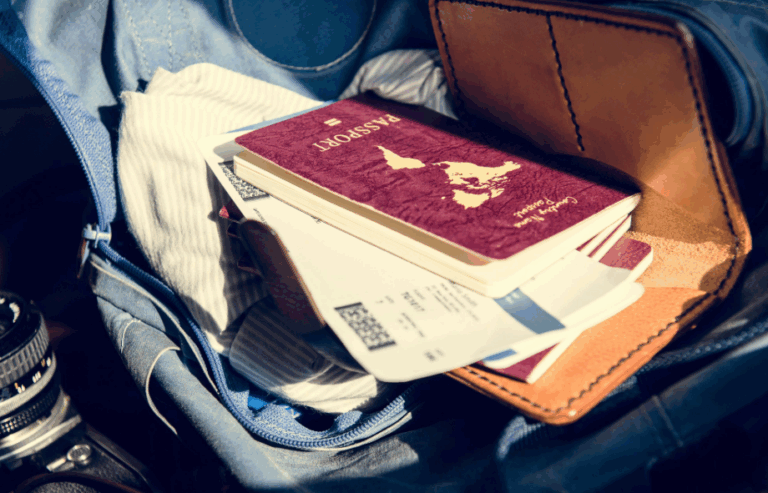If you’re planning to travel abroad with your beloved dog or cat, one of the first questions is: do they need a pet passport?
The short answer is: not exactly in the way you and I think of a “passport.”
But don’t worry, your pet still needs proper documentation. In this post, we break down what’s currently required, what’s changed since Brexit, and how PetAir UK safely relocates over 33,000 pets to 300+ destinations.
What was the “Pet Passport” and why it’s changed
Historically, pets in the UK travelled on an EU-style pet passport, which recorded microchip ID, rabies vaccination, and other health checks.
But since 1 January 2021 (post-Brexit), UK vets can no longer add rabies vaccinations into an EU pet passport.
As a result:
- EU-issued pet passports (issued in EU countries or Northern Ireland) may still be accepted for travel.
- But UK-issued pet passports as we once knew them are no longer used for journeys to the EU.
- Instead, pets travelling from Great Britain (England, Scotland, Wales) now generally require an Animal Health Certificate (AHC) or, for non-EU countries, an Export Health Certificate (EHC).
So, in reply: your pet doesn’t need a “passport” in the old sense – but they absolutely need certified travel documents.

Which document you need depends on destination
Travelling to the EU or Northern Ireland:
If your pet is leaving Great Britain for the EU (or Northern Ireland), the standard document required is the Animal Health Certificate (AHC).
4 key points about Animal Health Certificates:
- The AHC must be issued by an official veterinarian (often called an OV) no more than 10 days before departure.
- It is valid for one trip into the EU (entry) and 4 months of onward EU travel (or until the pet’s rabies vaccine expires)
- The certificate will document your pet’s microchip, rabies vaccination, and any required parasite treatments (dogs sometimes require tapeworm treatment).
- Remember: UK vets can no longer record rabies vaccinations in EU pet passports (so a fresh AHC is mandatory)
Travelling outside the EU:
If your pet is relocating (or visiting) a non-EU country, you’ll generally need an Export Health Certificate (EHC):
- You’ll generally need an Export Health Certificate (EHC) or equivalent health certificate required by the destination country.
- Some countries also demand extra tests such as rabies serology (titer) test, additional vaccinations, or parasite treatments.
- The timing becomes more critical: you may need to allow several weeks (or even months) for titer tests and waiting periods.

Requirements for international pet travel
Regardless of the destination, the following are universally essential:
- Microchipping: Your dog or cat must have an ISO-compliant microchip (15-digit, ISO 11784/11785). Implant it before or at the same time as the rabies vaccination.
- Rabies vaccination (not required for all countries): Your pet must receive a valid rabies vaccination after microchipping.
For most destinations, you’d need to wait at least 21 days after vaccination before travel can occur. Note: boosters may allow immediate travel if there’s been no break in cover. - Parasite treatments (not required for all countries): Some countries (especially the UK on re-entry) require tapeworm treatment for dogs between 1 and 5 days before arrival. Check destination-specific rules for ticks, internal parasites, etc.
- Health check and endorsement: On the day the certificate is issued (or within a defined timeframe), the vet will check that your pet is fit to travel. The certificate must be endorsed by a government or official veterinarian as required.
Arrival compliance and route requirements: Many destinations require arrival via designated travellers’ points of entry (airports, ports) where pet documentation is checked. Some countries may impose quarantine or refuse entry if paperwork is incomplete.

Pitfalls & things often misunderstood
- Assuming an old UK pet passport will still work: If your pet has a UK-issued pet passport (post-2021), it is no longer accepted for travel to the EU.
- Late paperwork: Getting your AHC or EHC too close to travel may leave no margin for error. You might miss the 10-day window, or fail to allow for lab turnaround times.
- Titer test timing: For pets coming from “unlisted” countries, the rabies blood (titer) test must be done soon after vaccination, then you may need to wait a few months before entry. (These timings vary depending on the country you are travelling to).
- Overlooking transit rules: If your itinerary includes layovers in third countries, you may need additional certification or meet transit rules – always check the full route.
- Quarantine risk: Non-compliance with documentation can result in quarantine on arrival (in some countries), refusal of entry, or even euthanasia in extreme cases (rare, but documented).
Tips for smooth pet travel
- Start early: begin microchipping and rabies vaccinations well before your planned departure. (However, please note, this might have to be given within 12 months of travel).
- Work with your vet and find an Official Vet (OV) or vet authorised to issue AHC/EHC.
- Confirm destination-specific requirements (some nations demand exotic vaccinations, or bans on certain breeds).
- Keep a travel file: printed originals of AHC/EHC, vaccination records, microchip certificate, contact details.
- Choose direct flights if possible; avoid transits through countries with stricter rules.
- Use IATA-compliant crates and familiarise your pet with the crate ahead of travel. Read our blog on preparing your dog for long-distance air-travel to learn more about this.
- Request your vet to write a fitness-to-fly certificate if required by airlines.
- If relocating long term, secure local vet contacts at destination and understand post-arrival health checks.

Why choose an expert pet shipping company like PetAir UK?
With over 33,000 pets safely relocated to 300+ destinations globally, at PetAir, we deeply understand the shifting landscape of pet travel. Our vet-led team stays current on documentation changes, airline requirements, and the nuances of different countries.
We support you through every step – from paperwork and vet liaison to flight arrangements – so that your dog or cat travels legally, safely, and with peace of mind.
Need help planning your pet’s journey?
So, do dogs or cats need a passport? Not in the traditional sense – but they absolutely require the correct travel documentation suited to the country you’re travelling to. Getting this wrong can result in denied entry, quarantine, or worse.
If you’re planning to take your pet overseas, now’s the time to get expert support. Contact PetAir UK at +44 (0)1725 551 124 +44 (0)2039 266 622 or request your personalised travel quote online today.
Let us help you make their journey safe, legal and stress-free.






